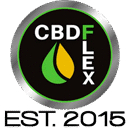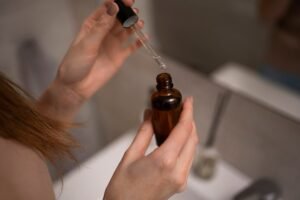CBD and Workplace Drug Testing Policies: What You Need to Know
In recent years, the popularity of CBD has skyrocketed due to its numerous potential health benefits, including stress relief, pain management, and better…
Table of contents
In recent years, the popularity of CBD has skyrocketed due to its numerous potential health benefits, including stress relief, pain management, and better sleep. However, despite its widespread use, many employees remain confused about how CBD might affect their employment status—particularly when it comes to drug testing. If you’re considering using CBD but are concerned about workplace policies, it’s essential to understand how CBD and workplace drug testing policies intersect.
In this article, we’ll explore how CBD is treated in the workplace, whether it can result in a failed drug test, and how you can protect yourself while using CBD products.
Understanding CBD: What Is It?
CBD, or cannabidiol, is one of the many compounds found in the cannabis plant. Unlike THC (tetrahydrocannabinol), CBD is not psychoactive, meaning it doesn’t get you “high.” Many people turn to CBD for relief from anxiety, inflammation, chronic pain, and even seizure disorders. It’s commonly found in oils, gummies, lotions, capsules, and more.
CBD products are typically derived from hemp, a variety of cannabis that contains less than 0.3% THC. However, even trace amounts of THC can cause concern when it comes to CBD and workplace drug testing.
CBD and Drug Testing: Can It Trigger a Positive Result?
Most workplace drug tests are designed to detect THC, not CBD. However, many CBD products—especially full-spectrum ones—contain trace amounts of THC, which can accumulate in the body over time. As a result, it’s possible (though not common) to fail a drug test due to regular use of certain CBD products.
Factors That Increase the Risk of a Positive Test:
- Using Full-Spectrum CBD Products: These contain all cannabinoids, including THC.
- Poor Quality Control: Some CBD products are mislabeled and may contain higher levels of THC than claimed.
- Frequent Usage: Daily use of even small-THC products can build up in your system.
- Body Chemistry: Everyone metabolizes cannabinoids differently.
To reduce your risk, consider using CBD isolate or broad-spectrum CBD products, which either contain no THC or have it removed.
The Legal Landscape: CBD and Employment Law
Although hemp-derived CBD is federally legal under the 2018 Farm Bill, workplace policies are not dictated by federal law alone. Employers are still allowed to implement their own drug-free workplace policies, especially in industries where safety is a concern (e.g., healthcare, transportation, and construction).
Key Legal Considerations:
- Federal vs. State Laws: Some states have stronger protections for CBD or medical cannabis users, but others defer to employer discretion.
- At-Will Employment: In many states, you can be terminated for a failed drug test—even if it was caused by a legal product like CBD.
- Medical CBD Use: If you use CBD for a diagnosed medical condition cbd roll on for pain, you may be protected under disability laws—but it’s not guaranteed.
Best Practices for CBD Users in the Workplace
Navigating the balance between using CBD and maintaining employment requires careful planning. Here are several tips to help protect your job while reaping the benefits of CBD:
1. Choose the Right Product
Opt for CBD isolate or broad-spectrum products that are third-party tested for THC content. Always check the Certificate of Analysis (COA) before purchasing.
2. Inform HR or Your Employer
If you’re using CBD for a medical condition, you may want to discuss it with your HR department, especially if your job requires regular drug testing. Transparency can sometimes prevent misunderstandings.
3. Understand Your Company’s Drug Policy
Read your employee handbook or consult HR to learn about drug testing procedures and what substances are screened.
4. Avoid CBD Before Testing
If you know a drug test is coming up, consider abstaining from CBD for a period of time—particularly if you’re unsure of the product’s THC content.
5. Keep Documentation
Maintain records of your CBD purchases, the COAs, and any medical prescriptions related to its use. This documentation can be helpful in the event of a positive drug test.
Industries Where Drug Testing Is Common
Certain professions are more likely to require routine or random drug testing. If you work in or are applying to a job in one of the following sectors, you should be especially cautious about your CBD usage:
- Law enforcement
- Healthcare
- Transportation (especially under DOT regulation)
- Construction and heavy machinery
- Education and childcare
- Military or government positions
In these industries, CBD and workplace drug testing can become a significant concern due to strict safety and compliance standards.
5 FAQs About CBD and Workplace Drug Testing

1. Can using CBD oil make me fail a drug test at work?
Yes, it’s possible, especially if the product contains trace amounts of THC. Full-spectrum CBD products are the most likely to cause a positive test.
2. Are employers allowed to fire me for using CBD?
Yes, in most states. Even if CBD is legal, employers can enforce drug-free workplace policies, especially if THC shows up in your test.
3. How can I avoid testing positive while using CBD?
Use THC-free products (broad-spectrum or isolate), check for third-party lab results, and avoid questionable or poorly labeled products.
4. Does CBD show up on a standard drug test?
CBD itself is not typically screened for in standard drug tests. However, THC contamination or use of full-spectrum products can result in a failed test.
5. What if I use CBD for medical reasons—am I protected?
Possibly. Some states have protections for medical cannabis use, and you may be protected under disability laws. However, this is not guaranteed and depends on your location and employer.
Conclusion
As CBD and workplace in continues to gain mainstream popularity, understanding how it fits into the workplace becomes increasingly important. While CBD is generally safe and legal, its relationship with drug testing policies is complex and requires careful navigation.
Employees should take a proactive approach—educating themselves on company policies, choosing high-quality THC-free products, and consulting HR or legal professionals if needed. When used responsibly and with the right precautions, CBD can be incorporated into a wellness routine without risking employment.
Remember, CBD and workplace drug testing is a nuanced topic, and staying informed is your best defense.








 CBD Post Workout Roll-On for Pain Relief
CBD Post Workout Roll-On for Pain Relief